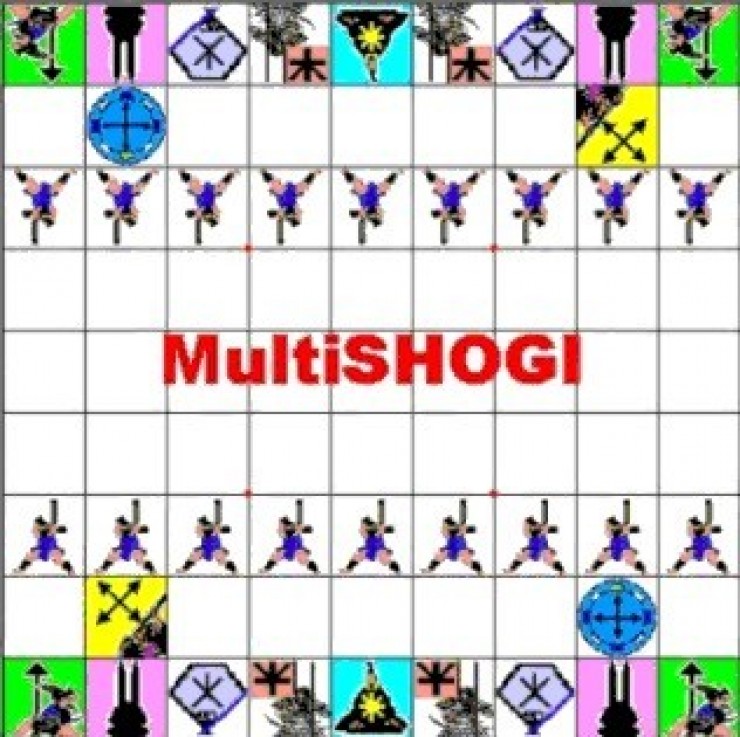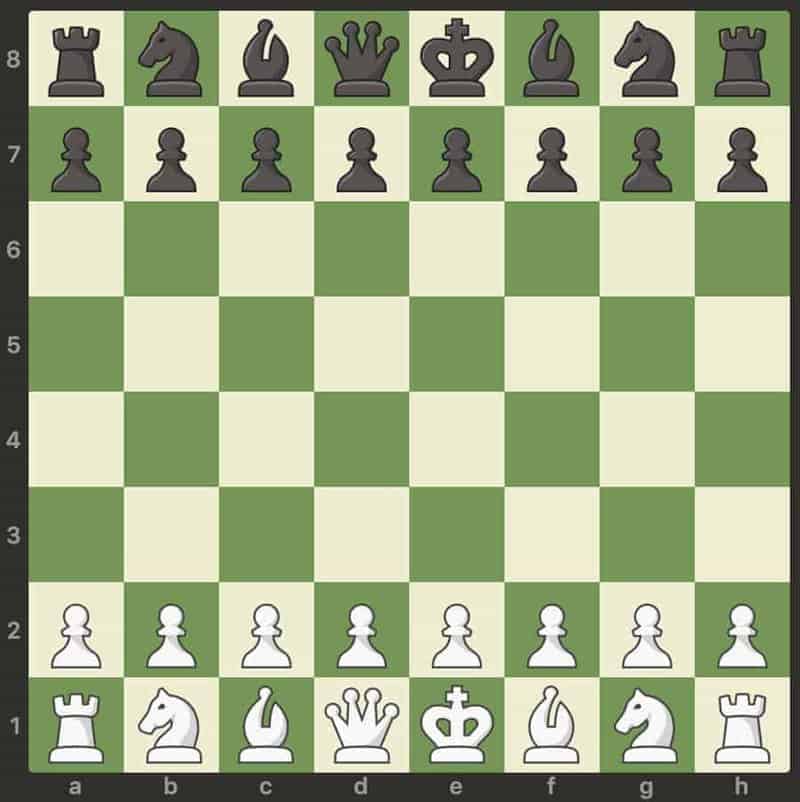

All pieces in these games are standard chess pieces, there are no fairy chess pieces. Some chess variants use different number of pieces for White and Black. Upside-down chess: The black and white pieces are switched so that all the pawns are one step away from getting promoted.Transcendental chess: Similar to Chess960, but the opening white and black positions do not mirror each other.Castling is permitted only if the king and a rook were placed on their usual squares. (The only restriction being, bishops must be placed on opposite-color squares.) Then the game proceeds in the usual way. Players continue to alternate in this manner until all pieces have been placed. The game starts with white and black pawns set as usual, but the initial position of other pieces is selected by the players in the following way: First, White places one of his pieces on his first rank, and then Black does the same. Pre-Chess: Proposed by Pal Benko in 1978.Some examples of this may be that the king and queen are flipped, or the knight on the b-file is traded with the bishop on the f-file. Displacement chess: Some pieces in the initial position are exchanged but the rules remain exactly the same.Chess960 (or Fischer Random Chess): The placement of the pieces on the first rank is randomized, and the pieces on the eighth rank mirror it.Upside-down chess starting position (White sits at bottom) The downside of these variants is that the initial position has usually less harmony and balance than standard chess position. The motivation for these chess variants is to nullify established opening knowledge. In most of such variants the pawns are placed on their usual place, but position of other pieces is either randomly determined or selected by the players. In these variants, the starting position is different, but otherwise the board, pieces and rules are the same. These chess variants are derived from chess by changing the board, pieces or rules. 2 Chess-related historic and regional games.1.9.1 Bishop+knight and rook+knight compounds.1.5 Chess with incomplete information or elements of chance.1.1 Chess with different starting positions.Some chess variants are used only in problem composition and not in actual play.

In the context of chess problems, chess variants are called fantasy chess, heterodox chess or fairy chess. Pritchard, author of The Encyclopedia of Chess Variants, estimates there are well over 2000.


Confining the number to published variants, D.B. The number of possible chess variants is virtually unlimited. They have some similarities to chess and share a common game ancestor. Regional chess games, some of which are older than Western chess, such as Chaturanga, Shatranj, Xiangqi and Shogi, are typically called chess variants in the Western world.


 0 kommentar(er)
0 kommentar(er)
